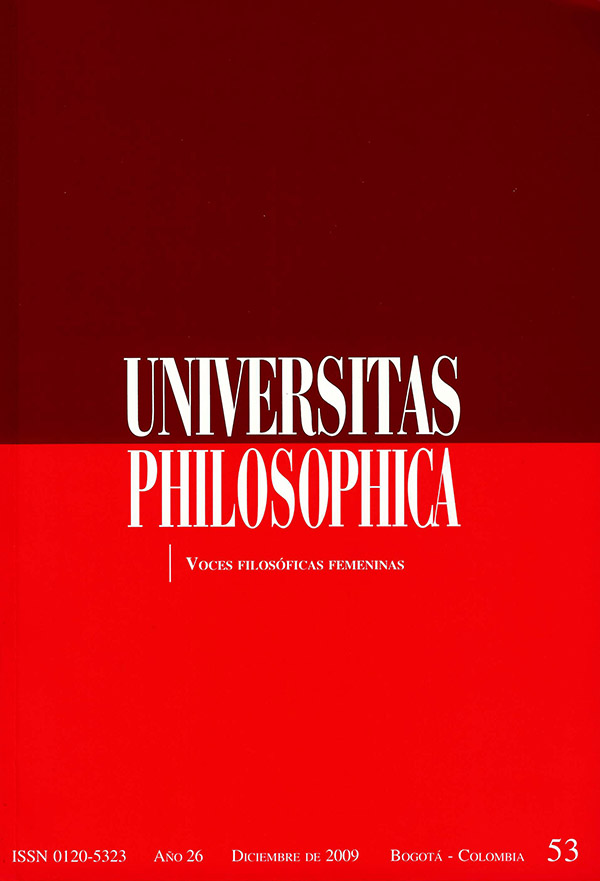Resumen
La discusión de Aristóteles sobre la amistad proporciona unanálisis integrador que, junto con la comprensión cotidianacomún, trata de tener en cuenta enfoques tan diferentes comolos de los sofistas y la meditación de Platón sobre este tema.El presente ensayo examina la complejidad del fenómeno dela amistad, en especial la difícil intersección de la amistadcomo la intimidad amorosa entre individuos excelentes(teleia philia) y la amistad como un vínculo político genuino.Sobre todo, trata de arrojar luz sobre la relevancia política dela amistad perfecta. Así entendida, la amistad se revela comoel fin o el destino de la política e incluso puede presagiarla auto-superación de la política como mera legalidad. Estoabre el camino para la comprensión de la finalidad de lapolítica como no mera conveniencia (de hecho, nada menosque como comunidad próspera) y para pensar lo políticosobre la base del pathos y la singularidad.Esta revista científica se encuentra registrada bajo la licencia Creative Commons Reconocimiento 4.0 Internacional. Por lo tanto, esta obra se puede reproducir, distribuir y comunicar públicamente en formato digital, siempre que se reconozca el nombre de los autores y a la Pontificia Universidad Javeriana. Se permite citar, adaptar, transformar, autoarchivar, republicar y crear a partir del material, para cualquier finalidad (incluso comercial), siempre que se reconozca adecuadamente la autoría, se proporcione un enlace a la obra original y se indique si se han realizado cambios. La Pontificia Universidad Javeriana no retiene los derechos sobre las obras publicadas y los contenidos son responsabilidad exclusiva de los autores, quienes conservan sus derechos morales, intelectuales, de privacidad y publicidad.
El aval sobre la intervención de la obra (revisión, corrección de estilo, traducción, diagramación) y su posterior divulgación se otorga mediante una licencia de uso y no a través de una cesión de derechos, lo que representa que la revista y la Pontificia Universidad Javeriana se eximen de cualquier responsabilidad que se pueda derivar de una mala práctica ética por parte de los autores. En consecuencia de la protección brindada por la licencia de uso, la revista no se encuentra en la obligación de publicar retractaciones o modificar la información ya publicada, a no ser que la errata surja del proceso de gestión editorial. La publicación de contenidos en esta revista no representa regalías para los contribuyentes.


